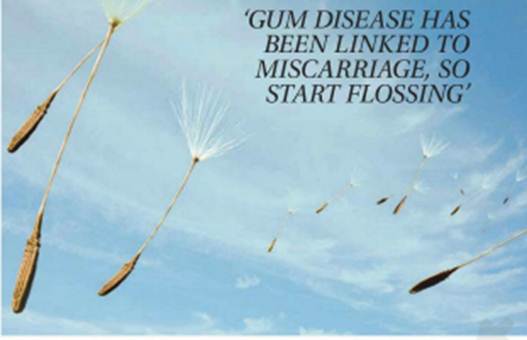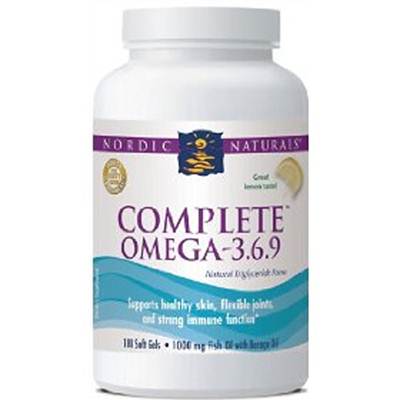You want to get pregnant … two year from now
Do the maths
Weigh and measure yourslf, then go to NHS
Choices (nhs.uk) to work out your up- to- date BMI. If it is between 18.5 and
24.9, pat yourself on the back. If it falls outside this bracker, it is time to
take action.in one study of more than 2,112 women published in Fertility and
Sterility, those with a BMI of between 25 and 39 took twice as long to get
pregnant than those within a healthy range. ‘Excess fat acts like a huge gland,
producing excess oestrogen, which can throw your whole body into imbalance and
affect ovulation,’ explains Dr Glenville.

Gum
disease has been linked to miscarriage, so start flossing
With irregular periods, fibroids and
polycystic ovaries being just some of the conditions that are more likely when
you are overweight, now is the time to start that diet and stick with it.
‘Being a healthy weight will not only make it easier to conceive, it means you
are more likely to have a healthy pregnancy, too,’ she adds.
Brush up
Gum disease could delay your chances of
becoming a mum, one Austrailian study of more than 3,500 women found that those
with gum disease took longer to conceive than those with healthy teeth. ‘Any
kind of inflammation in the body can affect the womb and prevent implantation,’
explains Dr Glenville. Michael agrees: ‘Gum disease has also been associated
with miscariage, so getting into the habit now of brushing your teeth twice a
day and flossing is essential,’ he says.
Take a break
If you have been on the Pill for some time,
it may be worth coming off now. ‘For some women, taking the Pill masks other
problems, including irregular periods or not ovulating at all,’ explains
Michael. ‘If you are serious about getting pregnants in the next couple of
years, this will give you plenty of time to sort out any unexpected
complications.’ Switch to condoms and monitor your periods. If they are very
light/ heavy, irregular or you experience bleeding between them, speak to your
GP.
Do not overdo it

‘Excessive
exercise causes a stress response in the body, triggering the adrenal glands to
produce cortisol,’
While moderate exercise has been shown to
improve your chances of conception, punishing workouts could have the opposite
effect. ‘Excessive exercise causes a stress response in the body, triggering
the adrenal glands to produce cortisol,’ explains Dr Glenville. ‘High levels of
this stress hormone stop the pituitary gland producing a luteinising hormone,
which is essential for ovulation.’
A study of 3,000 women in Norway appears to
back this up, with those who trained every day having the hightest risk of
infertility. ‘ It is always good practice to vary the intensity of your
workouts,’ says celeb personal trainer Dan Roberts (danrobertstraining.com). ‘I
recommend a rotation of hard (sprinting, intensive weights), medium (classes,
moderate runs) and soft (yoga, Pilates) session to prevent burnout.’
Think fat
A low- fat diet might get you into your
skinny jeans, but not necessarily a pair of maternity ones. ‘Your body needs a
certain amount of fat to produce the hormones necessary for conception,’
explains Dr Glenville. ‘One hormone, leptin, which plays an important role in
ovulation, appears to fall when fat reserves are too low.’
Michael agrees: ‘A woman must have body fat
of a least 18% to produce enough oestrogen to ovulate,’ he says. ‘But your best
chance of conceiving is when 20% to 25% of your body mass is fat tissue.’ To
measure yours, hop onto some body fat scales, such as Salter Glass Body
Anailyser Scale, $18.27, Argos.
He should be … getting into good habits
Now is the time for your partner to cut
back on the booze and Big Macs. If he protests, tell him one Brazillian study
found men who regularly drank alcohol and ate poorly took longer to conceive
with their partners because the quantity and quality of their sperm was much
lower.
Do it now!

Pop a fish oil supplement. ‘Omega- 3 fats
have an anti- inflammatory effect, which is partcularly helpful if you suffer
from endometriosis,’ explains Dr Glenville. ‘The best sources are oily fish,
such as mackerel, salmon and fresh tuna (although no more than two portions a
week, due ti possible mercury contamination). I recommend taking an omega- 3
supplement just in case.’ Try NHP’s Omega 3 Support ($42.3,
maturalhealthpractice.com).